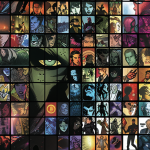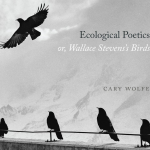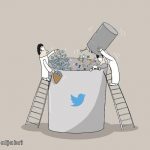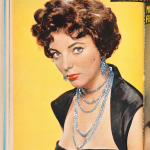image + narrative
Off Center Episode 11: Filmmaking and Combinatory Cinema with Roderick Coover

In conversation, Scott Rettberg engages with Roderick Coover and his multiplicitous career that started off as a forest ranger, a cinema projectionist, "a ski bum" and (further along) a winemaker in Burgundy, a couple of years of participant observation in Africa, the first all-electronic dissertation at the University of Chicago, works of combinatory cinema and other "differing narratives" that emerged in a still (inter)active literary and multi-medial career.
Comics as Big Data: The transformation of comics into machine-interpretable information

Like so many generic literary reconstructions, comics are now being transformed into information -- a process that, for postdoctoral scholar Ilan Manouach, is concomitant with the expansion of tools and services in the field of generative AI. Like so many AI emergences (and emergencies), this one poses important challenges to the comics industry and the careers of comics professionals.
Lines of Sight: Thirteen Ways of Looking at a System (Organism, Poem, or Otherwise)

What Mario Aquilina and Ivan Callus accomplished in their "13 Ways of Looking at Electronic Literature", Lisa Swanstrom does for Ecocriticism. Taking as her starting point, Cary Wolfe's book on Wallace Stevens, Swanstrom explores each and every one of Stevens's "13 Ways of Looking at a Blackbird." What emerges, alongside Wolfe's ecocriticism is a resurgence, in literary studies, of the art of close reading.
Including E-Literature in Mainstream Cultural Critique: The Case of Graphic Art by Khaled Al Jabri

In this essay, Doris Hambuch uses the image-based work of Arabic cartoonist Khaled Al Jabri to address concerns of technological dependence to reconsider our use of screens. Rather than simply reprimanding readers about the potentially negative dependence of our contemporary society on technology and its screens, Hambuch instead proposes that we look to Al Jabri's work as a way of reconsidering the role of the screen in visual poetics and graphic literature.
Photo Narratives and Digital Archives; or: The Film Photo Novel Lost and Found

A first draft of this essay was presented at the 2017 ELO Conference at Porto, in a panel organized by the "Nar-Trans" group of the University of Granada.